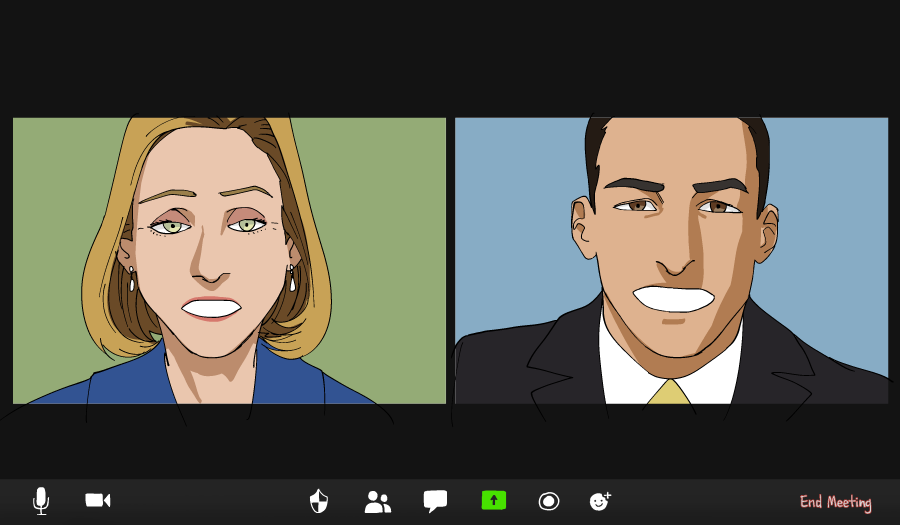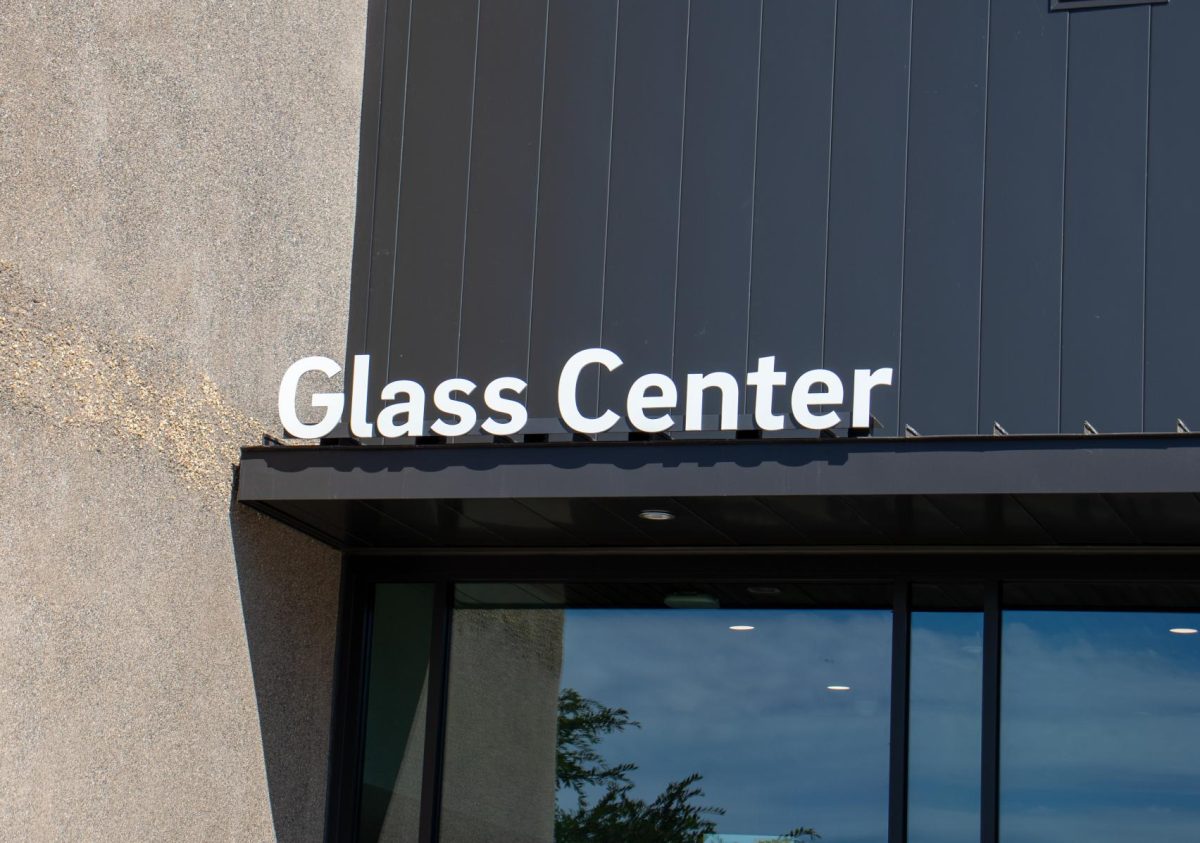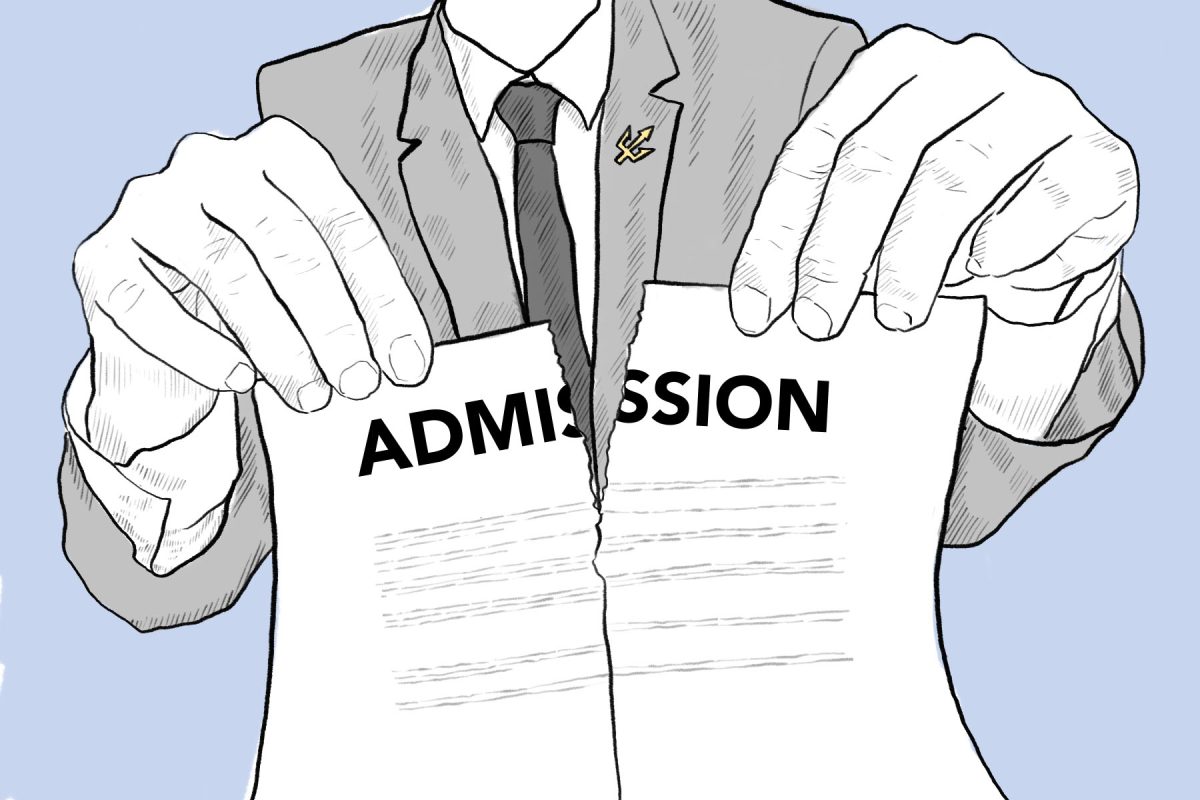The San Diego mayoral race shifted its focus to UC San Diego students as the two candidates took questions centered around topics considering students.
The political science department of UC San Diego hosted a mayoral debate between two Democratic candidates, San Diego City Councilwoman Barbara Bry and State Assemblymember Todd Gloria. The event, rather than being on a stage, took place via a Zoom conference call in partnership with KPBS. Andrew Bowen, a reporter at KPBS Metro, moderated the event with guest appearances from faculty members and students.
The partnership between the political science department and KPBS developed as a result of PBS’s coverage of local politics here in San Diego, according to Thad Kousser, the Department Chair of UCSD’s political science department. Their expertise as a news outlet in San Diego provided the event with professionalism. On top of the experience they provided, KPBS’s platform allowed for the event to “expand the reach of the event to the border community,” Kousser said.
The mayoral debate aimed to help UCSD students make an informed decision about who they want to vote for. The event complements the “Triton Vote” initiative at UCSD, which encourages students to register to vote. The intitivate, created by the Associated Students Civic Engagement Office, is receiving support from the Triton Athletes’ Council and has a goal to have all student-athletes registered to vote and have the election day free as well.
On top of their partnership with UCSD student-athletes, the “Triton Vote” movement encourages all students to register to vote. The initiative uses the TurboVote website as the way students can sign up to vote.
Additionally, “Triton Vote” provides students with information about deadlines and guides about the upcoming candidates and propositions. As a way to help students that are undecided or don’t want to make their decision over a guide, UCSD’s political science department wanted to provide a debate that had a narrow scope on issues that students care about.
“During a time in which national politics is dominating the headlines, but local government is more important than ever to San Diegans’ daily lives, we wanted to highlight what is going on in UCSD’s hometown,” Kousser told The UCSD Guardian. “And we wanted to create an issues forum, rather than a traditional debate, in order to push each candidate to dive deeply into the issues that we highlighted — social justice, San Diego’s housing crisis, and the post-pandemic economic recovery.”
All of these issues addressed some of the concerns students have with staying in San Diego long-term. The candidates answered all of the questions directed towards the students as they made their case as to why they are best fit to lead San Diego into the future.
Both candidates were “very happy to be part of this” for a reason, according to Kousser. Students participated in the event with the hope of knowing who they will be voting for in November and learning more about other measures that will be on the ballot.
“Some students might be hesitant to vote because ballots in California ask voters to make so many choices, with local offices and many propositions,” Kousser said. “While voters are free to leave any of those blank, we felt that by giving students a change to engage on local issues through meeting the mayoral candidates and hearing more about city ballot measures, they can have the confidence to come to the polls informed and engaged.”
After opening remarks from Chancellor Kholsa, the moderators presented the topics and then each speaker was allowed one minute and 30 seconds to respond.
The first question was about the housing affordability issue here in San Diego and how to improve the situation going forward. Both candidates cited their records and plan in their answers as they laid out their case.
Following the first question, three panelists delivered questions to the candidates.
Abbey Reuter, Associated Students AVP of Local Affairs, asked a question pertaining to privacy issues related to technology within the police force. Julia Adrian, Graduate Student VP of External Affairs, provided a question about improving child care during the COVID-19 pandemic. The last panelist, Professor Marisa Abrajano, department of political science and Warren College, asked how either of the candidates would address concerns about economic-racial inequality that has become more of an issue during the pandemic.
“We wanted to represent some of the many groups that make up the UCSD community,” Kousser said. “We reached out to the elected leadership of the undergraduate and graduate student leadership to select their panelists and chose a professor from our department who also leads a college.”
The rest of the forum followed a similar pattern as the moderator would shift the conversation to climate change and then the Black Lives Matter protests. The last 15 minutes featured moments of really back and forth as the topic of political action committees arose. Political action committees, which are funded via people outside either candidate’s campaign, buy ads that attack the opposing candidates.
Recently, a political action committee attacked Todd Gloria’s stance on “a bill that would give judges discretion on sex offender registration in certain statutory rape cases,” according to NBC 7. This attack led to threats being made to Todd Gloria on social media. Another political action committee passed out fliers that decried Babrabara Bry as either a progressive or a repulican, meaning to create confusion.
Both Todd Gloria and Barbara Bry were asked about the actions of these independent committees that have attacked the other candidate.
While things did heat up, the debate fared better than it did during the first presidential debate of the 2020 presidential race.
“Comparing this civil discussion of key issues to the debacle of the first presidential debate, it is no contest,” Kousser said.
During these exchanges built around controversy, one can’t help thinking what it would be like on a stage with an audience. The political science department planned the debate to happen in-person during Spring Quarter 2020, but the plans were thwarted due to the pandemic and had to be reorganized months later.
“While everyone misses the electric excitement of an in-person political event, I thought the intellectual level of the discussion was very strong and candidates interacted and challenged each other’s ideas as if they were in the same room,” Kousser said. “But we missed the chance for students to interact personally with the candidates afterward and to volunteer with their campaign teams if they liked what they heard. We hope to do that in an in-person issues forum in the next election cycle.”
Even though it was held via Zoom, the political science department feels that the event “exceeded expectations” with more viewers still to come in the future as the event is available on-demand on YouTube and will be broadcasted on UCTV as well. According to the political science department, 1,000 people registered for the Zoom call with 400 tuning in live. There were more that tuned in live on YouTube and on KPBS radio.
“Even in a busy election season, Tritons and the broader community are hugely engaged,” Kousser said.
The final five minutes of the debate featured closing statements as both candidates were given time to speak directly to UCSD students and let them know what they have planned for the future. Baraba Bry was the first one to address the UCSD student body.
“When you all graduate from UCSD, I’m thinking about you and what we need to do to keep you here in our city,” Bry said during the debate. “To make sure you are going to get a good job, that you’re going to have a place to live, that you’re going to be able to enjoy our natural environment: our beaches, base, and canyons.”
Following her closing remarks, Gloria followed Bry’s comments by connecting his past to his current platform and plan.
“I’m the son of a maid and gardener that were able to buy a home. Today in 2020 San Diego, blue-collar workers like them can’t buy a home and put their kids through college,” Gloria said during the debate. “I will be a mayor who will go to city hall every single day with stories like mine to make sure that pathways of opportunity that were there for me are there for you too.”
With UCSD starting a movement to get students to vote, they need to send voters that are informed about what both options are. This mayoral forum follows up on all of the efforts to get people to register. The format attempted to limit the research barrier that people feel when voting as the candidates laid out what they can offer students not only during their undergraduate degree, but also the rest of the students’ lives.
Art by Yui Kita for The UCSD Guardian.













